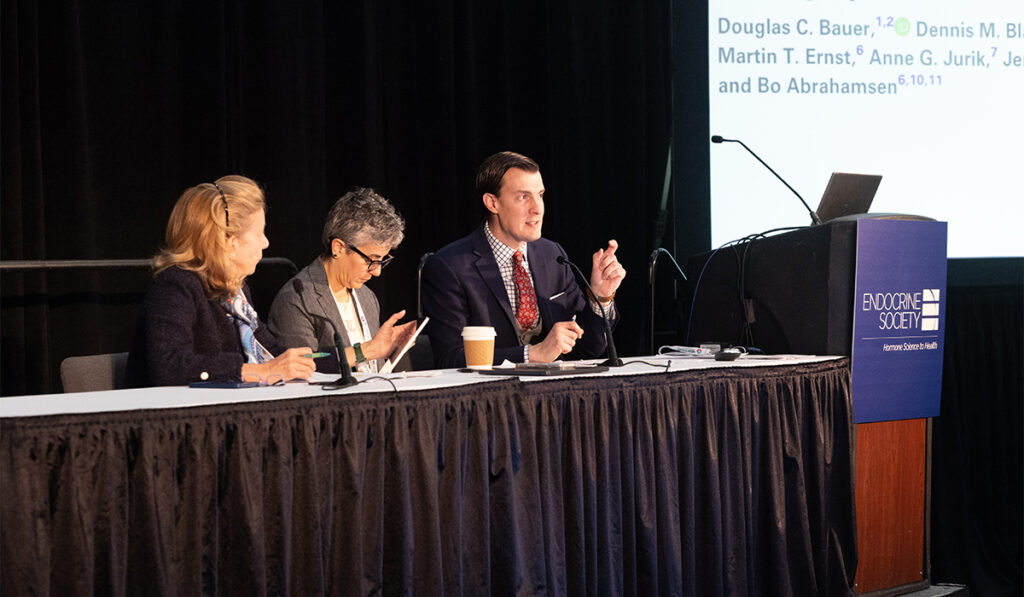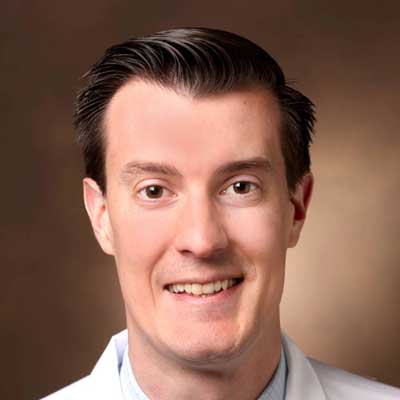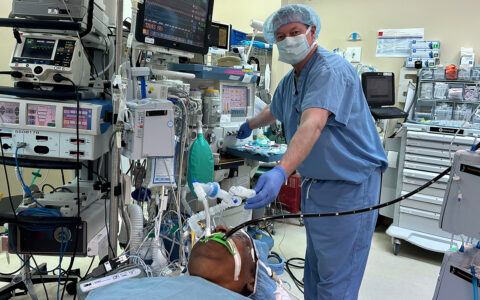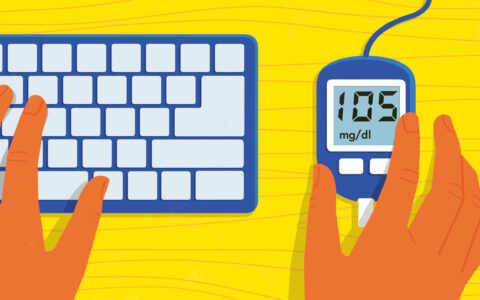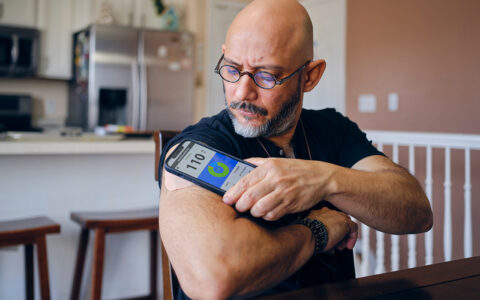Endocrinologist Chase Hendrickson, M.D., not only oversees clinics and inpatient teams within the Department of Medicine, he is the host of a well-regarded monthly podcast featuring analyses with researchers and clinicians on the latest clinical research.
Since 2020, Hendrickson’s Endocrine Feedback Loop has featured conversations between expert educators and subject-matter specialists in hour-long episodes in which the three discuss recently published journal articles and implications for clinical practice.
The podcast format mirrors the journal clubs at many educational institutions and brings together faculty contributors from around the world.
“The podcast series seeks to provide endocrinologists in all stages of their careers with supplemental insight into hot topic issues and study designs,” Hendrickson said.
As the podcast approaches its fifth anniversary, Hendrickson sat down with Discoveries in Medicine to reflect on the program’s growth and success. Below are excerpts from the conversation.
Discoveries in Medicine: Can you give us an update on the podcast’s growth?
Hendrickson: We had been on the Endocrinology Society’s website available only to subscribers; now, the podcast is up on major platforms, including Apple, Spotify and YouTube, for free. This makes it more convenient for listeners to get updates pushed directly to their phone.
We also started live podcasts at the Endocrine Society’s annual meeting in 2023 and 2024. The topic is a high-yield research article, something that moves the field forward or that may change clinical care. This makes the topic timely for those who can attend that talk, as well as for those who listen later.
Normally, we record the podcast over Zoom and later edit the recording of our conversation, breaking down the study. The live podcast gives a behind-the-scenes look at production. It may not be as smooth as the edited Zoom recording, but participants get to be in the same room and see our interaction, which makes it more fun. We also invite fellows from around the world to participate in the live podcast.
Educational Role
Discoveries: What is your view of the podcast’s role?
Hendrickson: The podcast’s purpose is to package cutting-edge research into a format that provides more context to the journal article. Endocrinologists can hear experts’ insights and information that may have been left out of the published piece.
We look for topics in recent Endocrine Society journals that have the potential to change practice. The topics run the gamut, with diabetes mellitus being the most frequently covered and obesity the least. We also look for controversial topics. Recently, the podcast covered whether liothyronine (T3) should be added to levothyroxine (T4) for hypothyroidism treatment, which is an unsettled, complex issue.
“The podcast’s purpose is to package cutting-edge research into a format that provides more context to the journal article.”
Discoveries: What have you learned from interviewing top people in the field?
Hendrickson: I learn a ton each episode. I’m a general endocrinologist without a subspecialty focus. Talking to experts, I see how much we all need to know. As any listener would, I gain an appreciation for how hard is it to keep up with new information. This pushes me to continue hosting the podcast.
Listening In
Discoveries: What drives the listeners to tune in?
Hendrickson: We attempt to make the podcast engaging. It’s easy to listen to, although somewhat technical, and helps disseminate ideas in digestible forms. Regular listeners know each podcast ends with the question: Do I need to change my practice? The ultimate goal is to inform and improve patient care.
“The podcast series seeks to provide endocrinologists in all stages of their careers with supplemental insight into hot topic issues and study designs.”
Discoveries: What are the listenership numbers now with the addition of multiple platforms?
Hendrickson: We know our podcast reaches thousands of listeners worldwide. In a few more months, we will have some hard numbers. That’s one of the benefits of being on multiple platforms.
Podcast Impact
Discoveries: What has been the impact of the podcast over time?
Hendrickson: Primarily to make knowledge and expertise more readily available. Our guests are instantly recognizable among endocrinologists and have expertise and respected opinions on patient care and the best clinical practices. We model the podcast after journal clubs within fellowship programs. It’s like a regular conversation with an expert in the field.
Discoveries: What’s your message to the Vanderbilt community?
Hendrickson: I’m excited to be at Vanderbilt and to host this podcast as a part of my academic work here. I spend about one-third of my time with endocrinology fellows in the outpatient clinic, which is one of the most meaningful parts of my job. I still run the journal club for the fellows, but I select different publications than I do for the podcast, so they can benefit from listening to the podcast, too.
